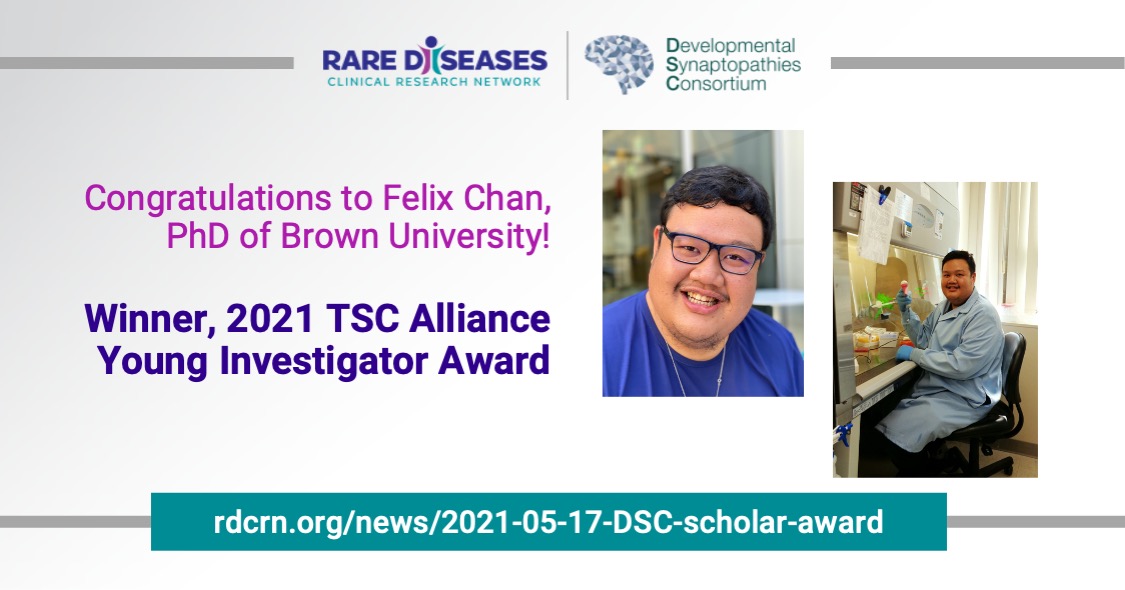The Rare Diseases Clinical Research Network’s Developmental Synaptopathies Consortium (DSC) has named Felix Chan, PhD, as the winner of its first-ever TSC Alliance Young Investigator Award for research in tuberous sclerosis complex. Chan is a post-doctoral fellow in the laboratory of Judy Liu, MD, PhD, in the Department of Molecular, Cellular Biology and Biochemistry at Brown University.
Tuberous sclerosis complex (TSC) is a genetic condition that affects many organs and can cause tumors in the skin, kidney, brain, heart, eyes, lungs and other organs. The severity of TSC can range from mild, such as skin abnormalities, to severe, such as seizures, intellectual disability or renal failure. The most common symptoms of TSC are seizures and developmental delay as well as benign tumors and skin lesions.
Chan’s fellowship project, titled “Lysine metabolism in tuberous sclerosis complex,” will examine how lysine metabolism interacts with the protein complex mTORC1 in epilepsy symptoms of individuals with TSC that are enrolled in the DSC longitudinal study. His research aims to identify if lysine metabolites in the blood could be a biomarker of seizure severity and potentially measure response to the medication everolimus (an mTORC1 inhibitor). He will also be exploring whether correcting lysine metabolism inhibits mTORC1 and neuronal activity in cells.
Through the fellowship, Chan will have the opportunity to work on large clinical datasets as well as to test his hypothesis using advanced molecular biology and genetic techniques on the induced pluripotent stem cell (iPSC) neuronal model of TSC.
The fellowship includes co-mentorship between Darcy Krueger, MD, PhD, at Cincinnati Children’s Hospital Medical Center (DSC Lead Principal Investigator for TSC) and the laboratories of Judy Liu, MD, PhD, and Eric Morrow, MD, PhD, both at Brown University.
The two-year fellowship is funded by the TSC Alliance and utilizes the extensive clinical data and biological samples of the DSC. The intent of the fellowship is to offer early-stage investigators the research environment and training they need to launch an academic career in translational research beneficial to TSC research and individuals living with TSC.
The Developmental Synaptopathies Consortium (DSC) is part of the Rare Diseases Clinical Research Network (RDCRN), which is funded by the National Institutes of Health (NIH) and led by the National Center for Advancing Translational Sciences (NCATS) through its Division of Rare Diseases Research Innovation (DRDRI). DSC is funded under grant number U54NS092090 as a collaboration between NCATS, the National Institute of Neurological Disorders and Stroke (NINDS), the Eunice Kennedy Shriver National Institute of Child Health and Human Development (NICHD), and the National Institute of Mental Health (NIMH).
All RDCRN consortia are supported by the network’s Data Management and Coordinating Center (DMCC) (U2CTR002818). Funding support for the DMCC is provided by NCATS and NINDS.


